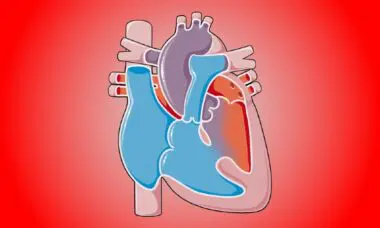 Vaping may increase the risk of developing cardiovascular diseases, according to a recently published US study.
Vaping may increase the risk of developing cardiovascular diseases, according to a recently published US study.
Environmental health researchers from the University of California (UC), the University of Southern California and the Huntington Medical Research Institutes in Pasadena found that the use of e-cigarettes may interfere with the link between blood flow and pressure as the heart pumps blood into the arteries.
The study, published in the Journal of the American Heart Association in September, looked at the way the use of both traditional cigarettes and electronic nicotine delivery systems affect heart function and found they disrupt it, posing a potential health risk.
According to the UC Irvine School of Population and Health, whose Air Pollution Health Effects Laboratory (APHEL) hosted the research conducted for the study, “vaping is another environmental factor that can contribute to heart disease, one of the leading causes of death worldwide”.
Public health intervention needed?
The authors said that while previous studies had already looked into an increased risk of heart health issues – such as heart attacks, arrhythmias and hypertension – coming from exposure to inhaled environmental particles, including those produced by vapes, the dynamics through which these pollutants affected cardiovascular health remained under-investigated.
This, they pointed out, prevented the drafting and implementation of interventions to protect public health.
“Our results support the growing call for public health policies aimed at reducing exposure to inhaled nicotine and to new synthetic nicotine products not yet on the market,” said APHEL co-director Michael Kleinman, who co-authored the study.
“APHEL hopes to further unravel the connection between inhaled environmental toxins and heart disease, contributing to safer, healthier communities,” he added.
Tested on rats
The effects of inhaled nicotine on cardiovascular health were tested by researchers on a cohort of 117 male and female rats. The rats were exposed to different kinds of inhaled substances, such as purified air, e-cigarette vapour without nicotine, e-cigarette vapour with nicotine, and traditional cigarette smoke.
Researchers used the so-called “intrinsic frequency” (IF) method, which analyses the heart’s left ventricles and arterial function.
“Our IF results suggest that nicotine-containing electronic cigarettes adversely affect vascular function and left-ventricle‐arterial coupling, whereas standard cigarettes have an adverse effect on left-ventricle function,” the study reads.
A non-invasive method to evaluate risks
Authors used a non-invasive testing technique to fill what they believe is a gap in available research on the impact of vapes on users’ health.
“Some studies have shown clear pulmonary consequences of e-cigarette use; however, effects of chronic vaping on the cardiovascular system remain speculative and controversial,” they wrote. “Here, we aimed to evaluate effects of nicotine delivered by chronic e-cigarette exposure or standard cigarettes on the cardiovascular system, using the IF metrics computed from carotid pressure waveforms.”
The implementation of this investigative method, authors pointed out, may pave the way for the use of non-invasive devices aimed at detecting cardiovascular conditions in smokers and vapers, although the development of such tools may require further research.
“There is a need to evaluate how the non-invasive form of our approach can instantaneously evaluate and stratify adverse cardiovascular effects of chronic vaping or smoking,” the study reads.
In terms of next steps, the researchers said: “A portable device based on this method needs to be developed and be given to high‐risk smokers to self‐apply at home to assist in the decision to seek health care for ambiguous symptoms.”
– Tiziana Cauli ECigIntelligence staff
Image: Laboratoires Servier







